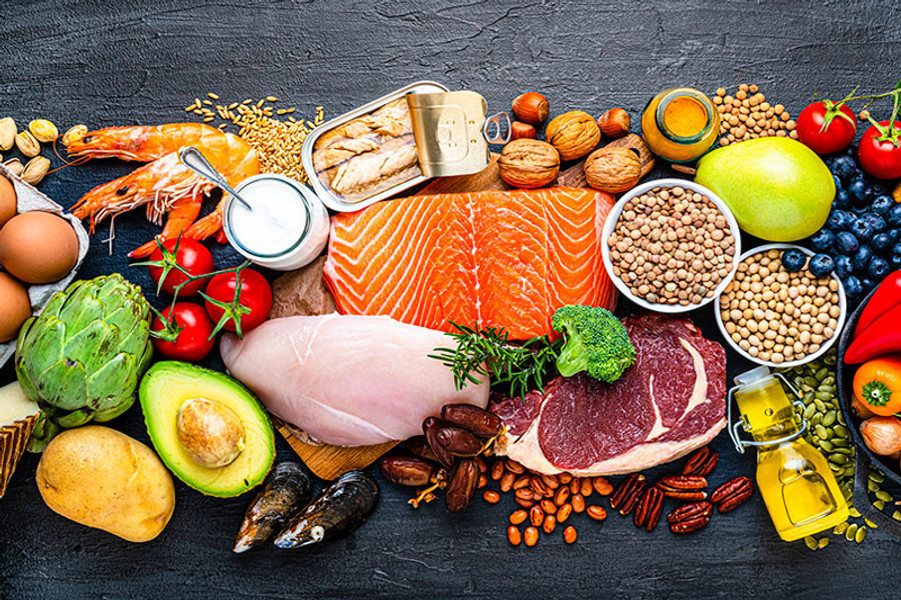A Guide to Anti-Inflammatory Foods, Fruits, and Vegetables
Posted by Fresh Harvest Market on 11th Sep 2024
Unlocking Nature's Healing Power
In our fast-paced world, where stress and unhealthy lifestyle choices abound, inflammation has become a common concern. However, the power to combat inflammation may be right in our kitchens. In this comprehensive guide, we'll delve into the world of anti-inflammatory foods, fruits, and vegetables, exploring their benefits and how they can contribute to a healthier you.
Understanding Inflammation
Before we embark on our journey of discovery, let's grasp the basics. Inflammation is the body's natural response to injury or infection. However, chronic inflammation can lead to various health issues, from arthritis to heart disease. The good news is that the right dietary choices can help quell inflammation and promote overall well-being.
The Mighty Turmeric: Nature's Anti-Inflammatory Superhero
Turmeric, the vibrant golden spice commonly found in curry, is a potent anti-inflammatory agent. Curcumin, its active compound, has been hailed for its ability to reduce inflammation at the molecular level. Incorporating turmeric into your diet, whether through curries, teas, or supplements, can be a flavorful and effective way to combat inflammation.
Berries: Small, Sweet, and Anti-Inflammatory
Berries, such as blueberries, strawberries, and raspberries, pack a punch when it comes to anti-inflammatory properties. Rich in antioxidants called flavonoids, these colorful fruits help neutralize free radicals in the body, reducing inflammation and promoting cellular health. Snack on a handful of berries or add them to your morning smoothie for a delicious anti-inflammatory boost.
Leafy Greens: Nature's Anti-Inflammatory Elixir
Leafy greens like kale, spinach, and Swiss chard are nutritional powerhouses that offer a myriad of health benefits, including anti-inflammatory effects. Packed with vitamins, minerals, and phytochemicals, these greens help regulate the body's inflammatory response. Whether sautéed, added to salads, or blended into a green smoothie, incorporating leafy greens into your diet is a smart choice for overall health.
The Anti-Inflammatory Magic of Omega-3 Fatty Acids
Fatty fish, such as salmon, mackerel, and sardines, are rich sources of omega-3 fatty acids. These essential fats are known for their anti-inflammatory properties, helping to reduce inflammation in the body. Aim to include fatty fish in your diet at least twice a week to harness the benefits of omega-3s and support a healthy inflammatory response.
Colorful Vegetables: A Palette of Anti-Inflammatory Goodness
Embrace the vibrant hues of vegetables like bell peppers, sweet potatoes, and broccoli. These colorful veggies are rich in antioxidants and anti-inflammatory compounds. Including a variety of vegetables in your meals not only adds flavor and texture but also contributes to a well-rounded, anti-inflammatory diet.
Nuts and Seeds: Tiny Packages of Anti-Inflammatory Power
Walnuts, almonds, and flaxseeds are excellent sources of omega-3 fatty acids and antioxidants. These nuts and seeds can be sprinkled over salads, yogurt, or enjoyed as a wholesome snack. Their anti-inflammatory properties make them a valuable addition to a balanced diet aimed at reducing inflammation in the body.
Ginger and Garlic: Flavorful Allies Against Inflammation
Ginger and garlic, commonly used in culinary delights, also boast anti-inflammatory benefits. These aromatic ingredients contain bioactive compounds that help modulate the inflammatory response. Whether incorporated into stir-fries, soups, or herbal teas, ginger and garlic can add both flavor and anti-inflammatory goodness to your meals.
Olive Oil: Liquid Gold for Anti-Inflammatory Living
Swap out refined oils for the golden elixir known as olive oil. Rich in monounsaturated fats and antioxidants, olive oil has been associated with lower levels of inflammation. Drizzle it over salads, use it for cooking, or dip whole-grain bread into it for a tasty and anti-inflammatory addition to your diet.
Probiotics: Supporting Gut Health and Reducing Inflammation
Maintaining a healthy gut is crucial for overall well-being, and probiotics play a key role in achieving this. Fermented foods like yogurt, kefir, and sauerkraut are rich in probiotics, promoting a balanced gut microbiome. A healthy gut contributes to reduced inflammation and improved immune function.
As we conclude our exploration of anti-inflammatory foods, fruits, and vegetables, it's clear that nature has provided us with a vast array of delicious options to support our well-being. By incorporating these nutrient-rich choices into your daily diet, you can take a proactive step towards reducing inflammation and enjoying a healthier, more vibrant life. Remember, the journey to wellness begins with the choices we make in our kitchens, embracing the healing power of nature one bite at a time.

